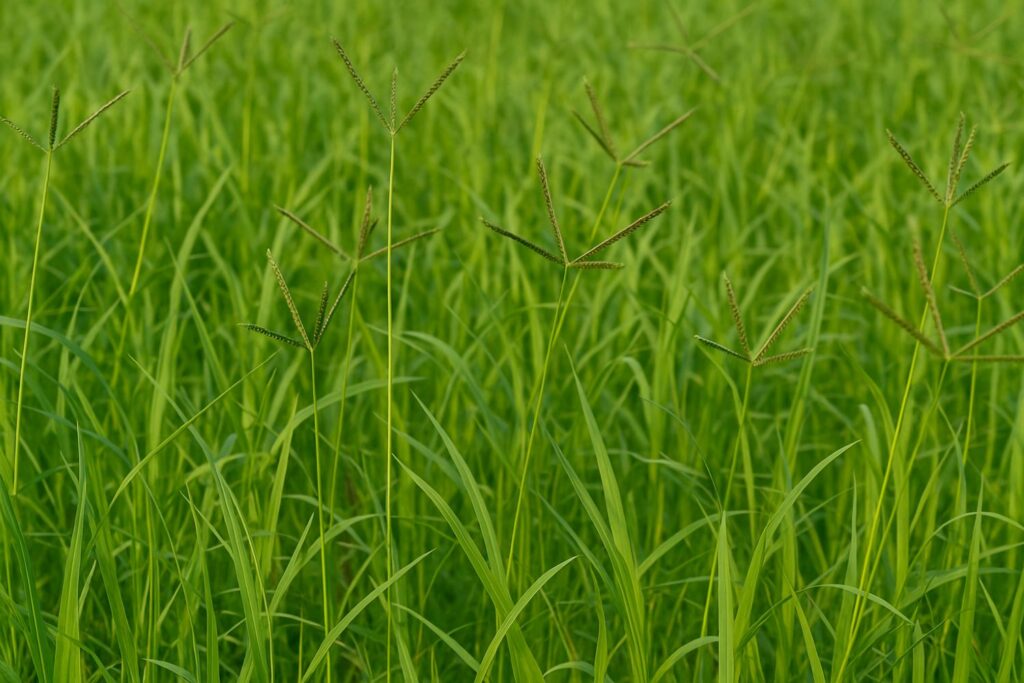Scientists decipher the genome of Paspalum notatum: a key forage grass for South American agriculture

El pasto horqueta, una gramínea forrajera esencial, revela su genoma y abre nuevas posibilidades para la mejora genética de cultivos agrícolas.
In a significant breakthrough for agronomic science, an international team of scientists has successfully deciphered the genome of Paspalum notatum, a forage grass essential for South American agriculture. This study, conducted by experts from CONICET and universities in France and Italy, reveals crucial information about the genes involved in both sexual and asexual reproduction processes of this plant, which could have a direct impact on crop improvement at a global scale.
Paspalum notatum has the unique ability to reproduce both sexually (through biparental seed formation) and asexually (via apomixis, producing clones of the mother plant). These reproductive mechanisms allow it to quickly adapt to different conditions and expand efficiently in its natural environment. However, apomixis remains a poorly understood phenomenon in many plant species, which makes the sequencing of this genome especially relevant for science.
Thanks to this research, the scientists identified more than 45,000 genes of this grass species, providing a solid foundation to better understand the biological processes involved in both sexual and asexual seed formation. These findings hold great potential for application in the genetic improvement of other agronomic crops such as maize and rice, ultimately contributing to increasing global food production.
Impact on crop genetic improvement
One of the fundamental goals of this research is to use the knowledge obtained on the reproductive mechanisms of Paspalum notatum to enhance plant breeding programs. Genetic information about apomixis, which enables the creation of clonal seeds without sexual fertilization, can be used to develop hybrid varieties with superior agronomic traits, such as greater disease resistance and tolerance to extreme climate conditions.
Juan Pablo A. Ortiz, director of the Institute of Research in Agrarian Sciences of Rosario (IICAR-CONICET), highlights the importance of this achievement: “Many of the genes identified in this work are of interest for agronomy, such as tolerance to biotic and abiotic stress, disease resistance, and biomass production.” These advances not only have the potential to improve the quality of existing crops, but also to contribute to the development of new varieties adapted to diverse climates and ecosystems.
The potential of apomixis in modern agriculture
Apomixis is a reproductive process that enables the creation of seeds without the need for sexual fertilization. This has enormous implications for agriculture, since by using this mechanism, seeds with desirable traits can be generated more efficiently and at lower cost. Unlike sexual reproduction, which requires the creation of pure lines and repeated crossings, apomixis allows clonal seeds to retain the properties of the mother plant, accelerating the genetic improvement process.
Researchers point out that, by applying this knowledge to the breeding of crops such as maize or rice, it would be possible to create agronomically superior hybrids without the high costs associated with traditional seed production. Furthermore, the ability to produce high-quality clonal seeds can help lower seed prices and increase the accessibility of improved crops for farmers worldwide.






